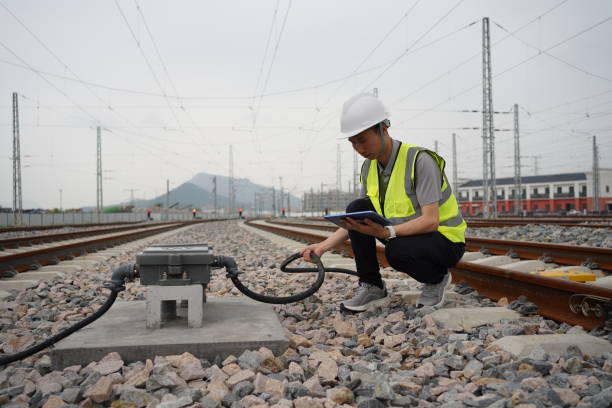Compensation payouts for train delays in Britain have surged to unprecedented levels, surpassing £100 million annually, as the number of claims for disrupted journeys continues to rise.
In the year leading up to April 2023, payouts to passengers for delayed or cancelled trains amounted to £101.3 million, marking a significant increase of 155% from the previous year’s total of £39 million in 2021-22.

According to the latest official data from the rail regulator, the Office of Rail and Road, projections indicate that the financial impact is expected to be even greater in 2023-24. Approvals for compensation claims across all train operators in Britain reached 4.6 million by early January, exceeding the previous year’s count with several months still remaining.
Although the rise in compensation payouts partly reflects a resurgence in train travel following the Covid crisis, the escalating figures far surpass the 40% increase in passenger numbers.
Challenges in Britain’s Rail Sector
In the past year in Britain, close to 320,000 train services faced cancellations or partial cancellations, contributing to widespread disruption and delays across the railways. Strikes, staff shortages, rail infrastructure damage, and mechanical failures on trains all played roles in the challenges faced by passengers.

Labour pointed out that this situation underscores the taxpayer’s burden in dealing with deteriorating rail services.
Despite promises of wholesale rail reform, the current compensation system places the burden on taxpayers. Under existing contracts, the government covers the compensation bill, paying operators a management fee regardless of their performance and bearing the cost of lost revenue.
It’s worth noting that compensation for delays only applies to scheduled services. Trains removed from the timetable typically do not trigger compensation, a policy that has faced significant criticism, particularly on lines like Avanti West Coast and TransPennine Express.
Critiques of the Current Rail Compensation System
The increasing compensation bill is partly attributed to the rise in automated payouts. Several train operators now offer immediate refunds to passengers who have booked advance journeys through their websites or to registered season ticket holders during disruptions.
Additionally, the industry has enhanced its response to complaints, with over 99% of claims being resolved within 20 days.

Labour criticized the system, highlighting that some of the worst-performing operators in terms of cancellations are being rewarded for their failures. Companies such as CrossCountry and the parent company of Avanti West Coast have distributed millions to shareholders and received contract extensions from ministers last year.
Louise Haigh, the shadow transport secretary, remarked, “Thanks to this government, private rail operators receive the same management fee regardless of service disruptions – they receive substantial public funds irrespective of performance. It is the taxpayer who bears the burden of our dysfunctional rail network.”
Labour Calls for Public Ownership
Labour has pledged to bring train operations back under public ownership as contracts expire, according to recent statements. In response to the growing compensation payouts, a spokesperson for the Rail Delivery Group, representing train operators, expressed apologies to those affected.
They emphasized the importance of customers knowing how to claim compensation for delays or cancellations, noting efforts to simplify the process. The spokesperson cited data from the Office of Rail and Road indicating that 99.5% of delay compensation claims were closed within 20 working days.
Acknowledging the challenges, the spokesperson stated that railway performance is not up to par and highlighted ongoing efforts within the rail industry to enhance train reliability. They mentioned recruitment and training initiatives aimed at improving resilience.
A Department for Transport spokesperson attributed the increase in compensation payouts to factors including an improved claims process, industrial action by Aslef, and weather-related disruptions.
They reiterated the government’s commitment to railway reform, collaborating with the industry to implement the rail reform plan while holding operators accountable for disruptions within their control and ensuring value for taxpayers’ money.
